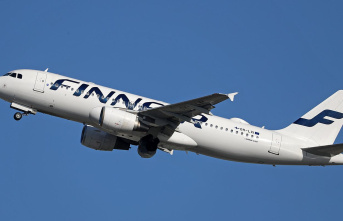"The strike is the last resort for us," said EVG negotiator Cosima Ingenschay to the partner newspapers of the "Neue Berliner Redaktionsgesellschaft" (Monday editions). The union therefore hopes for the second round of negotiations. "But we're not ruling anything out at this point."
Deutsche Bahn called the EVG strike "completely exaggerated, groundless and unnecessary". She called on the union to "return to the negotiating table immediately in the interests of employees and customers." The chief executive of the German Association of Towns and Municipalities, Gerd Landsberg, warned in the "Bild am Sonntag" of a possible indefinite strike if the negotiations failed. Such would be "an additional heavy burden for the people who are unlikely to accept it," he said.
The President of the Association of Municipal Employers, Gelsenkirchen's Lord Mayor Karin Welge (SPD), also sharply criticized the unions in the "BamS". "The striking of local, long-distance and airport traffic is excessive and not only damages the reputation of the public service, but also the reputation of Germany as a location, which depends on mobility," she said.
The economic policy spokeswoman for the Union parliamentary group, Julia Klöckner (CDU), said that "serious negotiations must be negotiated, but not all citizens taken hostage with a mega strike."
Verdi boss Frank Werneke defended the strike in the "Bams". This only works "if it sends out an unmistakable signal". "It's better to have a day when nothing happens in Germany, and then a wage agreement that is acceptable for the employees, than failure and weeks of arguments as a result, which ultimately affect the population much more," he explained.
Verdi and EVG called for the walkout to emphasize their demands for significant wage increases. The industrial action is scheduled to begin on Monday night and last 24 hours. On Monday, the railway wants to stop long-distance traffic completely, and regional trains are likely to be canceled for the most part. In seven federal states - Baden-Württemberg, Bavaria, Hesse, Lower Saxony, North Rhine-Westphalia, Rhineland-Palatinate and Saxony - local public transport is also generally affected.
Most major airports are also on strike, with the exception of Berlin. The strike began on Sunday at Munich Airport. There was no regular passenger traffic. Frankfurt am Main Airport also reported problems on Sunday - but not because of the strike. Technical problems caused impairments in the course of operations, it said. Regular passenger traffic will also be suspended in Frankfurt on Monday due to the strike.
The Pro Bahn passenger association advised rail commuters to work from home on Monday. "If working from home is not possible, commuters should carpool with colleagues for the outward and return journey," said Pro-Bahn honorary chairman Karl-Peter Naumann to the editorial network Germany.











